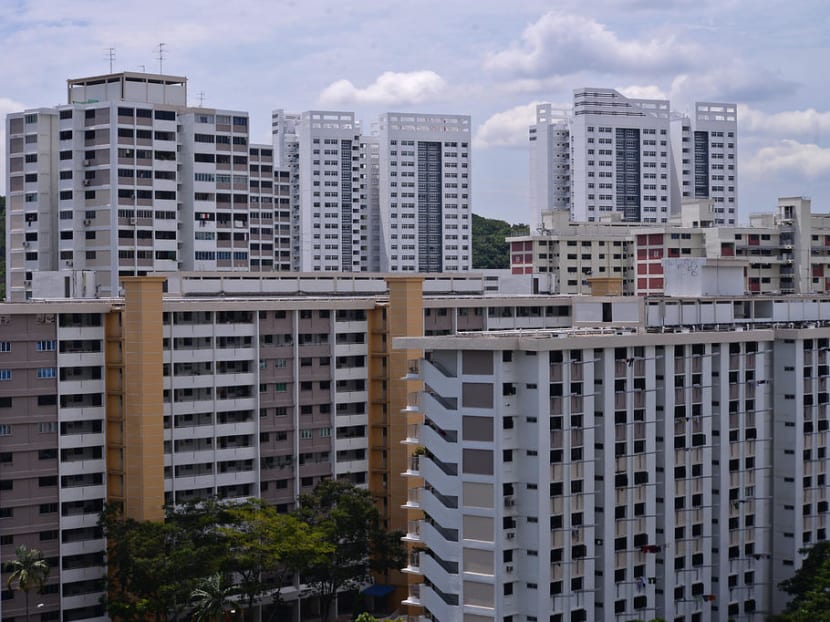Prices of older HDB flats fall slower compared to private homes: Study
SINGAPORE — Older Housing and Development Board (HDB) flats depreciate at a much slower rate compared to private residential properties, a study showed.

The study, done by the National University of Singapore, found that while the public housing units and the private non-landed units declined in value at the same rate for the first 10 years, there was significant difference in the rate at which their prices fall after 30 years.
SINGAPORE — Older Housing and Development Board (HDB) flats depreciate at a much slower rate compared to private residential properties, a study showed.
The study, done by the National University of Singapore (NUS), found that while the public housing units and the private non-landed units declined in value at the same rate for the first 10 years, there was significant difference in the rate at which their prices fall after 30 years.
The NUS research team compared the resale transaction prices of HDB flats and private non-landed properties such as condominiums and apartments from 1997 to 2017.
Their findings showed that the prices of both groups declined at similar rates in their first 10 years, after controlling for non-age-related factors such as housing size and type.
However, the rates diverge after another 10 years.
For freehold private residential homes above 20 years, their prices depreciated by more than 10 per cent. Leasehold private residential property prices depreciated by more than 30 per cent in the same period.
However, the depreciation rate for HDB flats was only 3 per cent after 20 years.
Beyond three decades, the prices of HDB flats declined at a much slower rate compared to private residential properties.
Associate Professor Sing Tien Foo, who co-authored the study, said that the difference could be due to efforts by the Government to upgrade HDB flats, which helped to “reduce the ageing effects more effectively than private properties”.
“The problem seems more serious for leasehold private property owners who face both ageing and lease decaying effects, as ageing can hasten economic obsoleteness of older buildings,” he said.
Subsidy grants for first-time buyers of resale flats also mitigated the depreciation in prices, even as the property ages.
OTHER CONDITIONS AFFECT PRICES
Property analysts told TODAY that while upgrading HDB flats was useful in maintaining their value, home buyers still had to take into consideration the broader market conditions before buying older flats.
Mr Desmond Sim, head of research for Singapore and South-east Asia at real estate agency CBRE, said that while HDB homes had the advantage of government upgrading programmes, these were merely “cosmetic factors”.
There were many other factors, such as availability of loans and location of the property, that affected the depreciation rate of flats.
Mr Ku Swee Yong, chief executive officer of real estate agency International Property Advisor and adjunct faculty member at Singapore Management University, said that the study may not have accounted for the resale value of private condominiums when they go through en-bloc sales.
He added that the depreciation value of HDB flats was not just due to the age of flats alone, but also due to the inability of younger buyers to buy older HDB flats.
“Because of loan limitations, the flat prices depreciate as there are fewer younger people who qualify to buy such properties. Therefore, the depreciation may not be due to age but due to policy restrictions that prevent the market from qualifying to own it.”
Mr Nicholas Mak, executive director and head of research and consultancy at real estate investment firm ZACD, said that HDB upgrades were a result of “government assistance and goodwill”. However, if the Government were to withdraw this goodwill, then public flats were likely to depreciate faster in value.
Mr Ku said that the study is unlikely to assuage the concerns of HDB flat owners who may be worried about the fall in their flats’ value as they approach the end of their 99-year lease.
“Even if the old HDB flats depreciate slower, their values will simply plunge more steeply in value at a later date when they approach their 99-year mark, when values reset to $0.”








